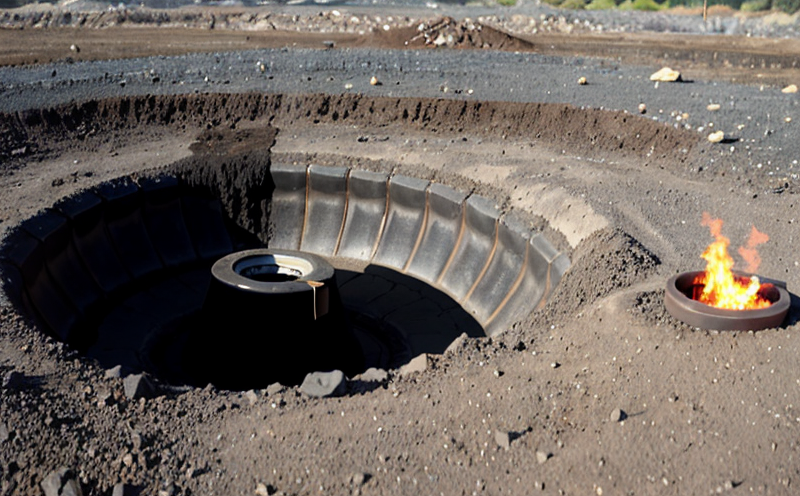ASTM D3180 Proximate Analysis Calculation Testing
The ASTM D3180 standard practice provides a comprehensive framework for performing proximate analysis on coal and fossil fuel samples. This testing method is essential in the mining sector, especially in quality management and compliance activities. Proximate analysis involves determining moisture content, volatile matter, ash, and fixed carbon in coal or other combustible materials.
Moisture content affects the energy density of the fuel and can influence combustion efficiency. Understanding volatile matter helps predict how much heat is released during pyrolysis and combustion processes. Ash contributes to slag formation, which impacts boiler performance and longevity. Fixed carbon represents the combustible portion that burns in the furnace.
For accurate proximate analysis, samples must be prepared according to ASTM D3180 guidelines. This includes drying at specific temperatures (105°C ± 2°C for moisture) and heating to higher temperatures (850°C ± 10°C for ash content). The sample is then weighed before and after each phase of the analysis.
The results are used in various applications, such as determining calorific value, assessing fuel quality, and optimizing combustion processes. Regulatory bodies like the Environmental Protection Agency (EPA) and international standards organizations rely on ASTM D3180 for consistent testing practices across industries.
For instance, when coal is imported or exported, it must meet strict specifications regarding its proximate components to ensure uniformity in quality and performance. In this context, accurate ASTMD3180 testing ensures compliance with international trade agreements and local environmental regulations.
The ASTM D3180 method is widely recognized for its robustness and reliability, making it a preferred choice among mining companies worldwide. Its standardized approach guarantees consistent results, which are crucial for effective quality control and product development in the mining sector.
Understanding how these components interact within the broader context of coal processing helps stakeholders make informed decisions about resource management, environmental impact assessments, and operational efficiency.
Why It Matters
Accurate proximate analysis is critical for several reasons. Firstly, it ensures that mining operations meet stringent quality standards set by regulatory bodies such as the EPA or international trade agreements. Compliance with these regulations not only protects the environment but also avoids legal penalties and reputational damage.
Secondly, precise testing allows for better resource management within mining companies. By understanding the exact composition of coal or fossil fuels, companies can optimize their processes to reduce waste and increase efficiency. This leads to cost savings in both raw material procurement and operational costs.
Thirdly, accurate analysis aids in product development and innovation. Understanding the elemental makeup helps researchers identify new applications for coal derivatives, such as biofuels or chemical feedstocks, which can open up additional revenue streams.
In summary, ASTM D3180 proximate analysis is not just a technical procedure; it's a cornerstone of responsible mining practices that contribute to sustainable development and economic growth.
Benefits
- Regulatory Compliance: Ensures adherence to international standards and local regulations, avoiding potential fines and legal issues.
- Economic Efficiency: Optimizes resource utilization by identifying waste reduction opportunities and improving operational processes.
- Innovation Potential: Provides insights into product development, leading to the discovery of new applications for coal derivatives.
- Sustainability: Supports environmentally friendly practices by minimizing environmental impact through efficient use of resources.
These benefits collectively enhance operational efficiency and sustainability within mining enterprises, contributing positively to both short-term profitability and long-term strategic goals.
Eurolab Advantages
Eurolab offers unparalleled expertise in ASTM D3180 proximate analysis testing. Our team of certified professionals ensures that every test adheres strictly to the latest versions of the standard, guaranteeing accuracy and reliability.
- State-of-the-Art Equipment: Equipped with high-precision analytical instruments designed specifically for coal and fossil fuel analysis.
- Comprehensive Reporting: Deliver detailed reports that not only present test results but also offer interpretative insights to guide decision-making processes.
- Consistency: Maintain consistent testing protocols across all samples, ensuring uniform quality assessments.
- Expert Consultation: Provide expert advice on how proximate analysis can be integrated into your broader quality assurance strategy.
Beyond just executing tests, Eurolab offers a full suite of services aimed at helping mining companies achieve their quality and compliance objectives. Partner with us to ensure you're always operating within the highest standards.





